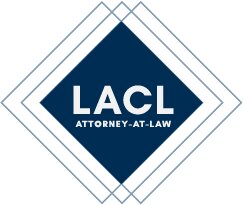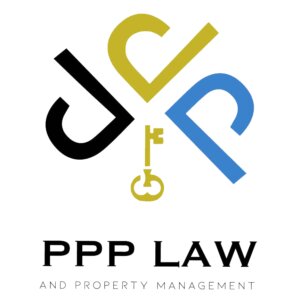Best Renewable & Alternative Energy Lawyers in Huai Khwang
Share your needs with us, get contacted by law firms.
Free. Takes 2 min.
List of the best lawyers in Huai Khwang, Thailand
About Renewable & Alternative Energy Law in Huai Khwang, Thailand
Renewable and alternative energy has become a significant focus in Huai Khwang, a bustling district in Bangkok, Thailand. The Thai government is encouraging the use of cleaner energy sources, such as solar, wind, biomass, and hydroelectric power, to reduce reliance on fossil fuels and lower carbon emissions. Both individuals and businesses are becoming increasingly involved in installing renewable energy systems, both for environmental reasons and to take advantage of government incentives. As a result, a range of legal considerations has emerged, from compliance and permitting to contractual relationships and intellectual property in new technologies.
Why You May Need a Lawyer
Navigating the transition to renewable and alternative energy can involve complex legal matters. Here are some common situations where legal guidance may be essential:
- Obtaining permits and licenses to install solar panels, wind turbines, or biomass facilities on your property
- Drafting, reviewing, or negotiating contracts with energy providers, technology suppliers, or contractors
- Understanding how to qualify for government incentives, such as feed-in tariffs or tax benefits
- Dealing with disputes related to shared energy systems in condominiums or commercial buildings
- Ensuring compliance with zoning, safety, and environmental regulations
- Protecting proprietary technology or intellectual property used in renewable energy projects
- Securing financing or investment agreements tailored to green energy initiatives
- Handling cross-border agreements, especially if you are partnering with international companies for equipment or expertise
Local Laws Overview
Renewable and alternative energy in Huai Khwang must comply with both national and local regulations. Some key legal aspects include:
- Permitting and Licensing: Installation of solar, wind, or other renewable energy systems often requires approval from local authorities, such as the Bangkok Metropolitan Administration (BMA), and sometimes the Energy Regulatory Commission (ERC).
- Environmental Regulations: Projects may need environmental impact assessments or approvals, particularly for larger systems or those located near sensitive areas.
- Land Use and Zoning: There are restrictions on where renewable energy installations can be placed, especially in densely populated or mixed-use zones like Huai Khwang.
- Incentive Programs: The Thai government offers programs like feed-in tariffs and special loans for renewable energy projects. There are specific criteria and application processes for these incentives.
- Electricity Sales and Grid Connection: Legal frameworks regulate the sale of electricity produced from renewables back to the grid, including metering, pricing, and contractual obligations with the Metropolitan Electricity Authority (MEA).
- Safety Standards: Systems must meet Thai Industrial Standards Institute (TISI) or relevant international safety standards to ensure proper installation and operation.
Frequently Asked Questions
What types of renewable energy are supported in Huai Khwang?
Solar energy is the most commonly adopted renewable source in Huai Khwang, especially for rooftop panels. Other options, such as wind and biomass, are less widespread but are supported under Thai laws and incentive programs.
Do I need permission to install solar panels on my property?
Yes, most residential and commercial solar installations require approval from local authorities and must comply with building codes and safety standards.
Are there government incentives for investing in renewable energy?
There are several government incentives available, including tax benefits, low-interest loans, and feed-in tariffs for energy sold back to the grid. Eligibility depends on the scale and technology of your project.
Can residents of condominiums or apartments install renewable energy systems?
Condominium residents need approval from the building's juristic person (management committee) and must comply with shared property rules. Project feasibility may vary based on building design and existing infrastructure.
Who regulates renewable energy projects in Huai Khwang?
The main regulatory bodies include the Energy Regulatory Commission (ERC), the Ministry of Energy, the Metropolitan Electricity Authority (MEA), and the Bangkok Metropolitan Administration (BMA).
What are the key legal risks in renewable energy projects?
Risks include non-compliance with safety or environmental laws, disputes in contracts, failure to meet incentive program criteria, and issues in grid connection or power purchase agreements.
Is it possible to sell excess electricity back to the grid?
Yes, Thailand allows net metering and feed-in tariffs for certain types and sizes of renewable energy systems. The process involves applying to the MEA and signing a power purchase agreement.
How long does it take to obtain the necessary permits?
The timeframe varies depending on the complexity and size of your project, but it typically takes several weeks to a few months, especially if environmental or community reviews are needed.
What happens if my renewable energy system causes damage or injury?
You may be liable under Thai civil law if your system is improperly installed or maintained. It is crucial to follow all safety regulations and use certified installers.
Can foreigners own and operate renewable energy businesses in Thailand?
Foreign ownership of renewable energy businesses is possible but may be subject to restrictions under the Foreign Business Act. Specific licenses and partnership structures may be required.
Additional Resources
- Energy Regulatory Commission (ERC) Thailand - The main authority overseeing energy regulation and licensing
- Ministry of Energy - Ministry responsible for national policy and incentive programs
- Metropolitan Electricity Authority (MEA) - Handles grid connection and electricity sales contracts in Bangkok
- Department of Alternative Energy Development and Efficiency (DEDE) - In charge of renewable energy promotion and technical standards
- Thai Industrial Standards Institute (TISI) - Issues safety and compliance standards
- Bangkok Metropolitan Administration (BMA) - Local authority managing permits and zoning in Huai Khwang
- Thailand Board of Investment (BOI) - Offers investment promotion and incentives, especially for green energy businesses
Next Steps
If you are considering a renewable or alternative energy project in Huai Khwang, here are some practical steps to follow:
- Define your project goals and determine the renewable energy technology best suited to your needs.
- Research local regulations and check what permits and licenses apply to your property or business.
- Contact local authorities or regulatory bodies for guidance on application procedures.
- Consult a qualified lawyer experienced in renewable energy law in Thailand to review your plans, assist with applications, and ensure compliance.
- Prepare all necessary documentation, including technical specifications, site plans, and safety assessments.
- If contracting with installers, suppliers, or power buyers, have your contracts reviewed by legal counsel.
- Apply for relevant permits, incentives, and grid connection agreements as required.
- Maintain records of all communications and submissions to authorities for future reference.
A lawyer can streamline this process, reduce risks, and help you take full advantage of available incentives and legal protections. If you are uncertain where to start, consider reaching out to a local law firm or legal aid organization specializing in energy and environmental law.
Lawzana helps you find the best lawyers and law firms in Huai Khwang through a curated and pre-screened list of qualified legal professionals. Our platform offers rankings and detailed profiles of attorneys and law firms, allowing you to compare based on practice areas, including Renewable & Alternative Energy, experience, and client feedback.
Each profile includes a description of the firm's areas of practice, client reviews, team members and partners, year of establishment, spoken languages, office locations, contact information, social media presence, and any published articles or resources. Most firms on our platform speak English and are experienced in both local and international legal matters.
Get a quote from top-rated law firms in Huai Khwang, Thailand — quickly, securely, and without unnecessary hassle.
Disclaimer:
The information provided on this page is for general informational purposes only and does not constitute legal advice. While we strive to ensure the accuracy and relevance of the content, legal information may change over time, and interpretations of the law can vary. You should always consult with a qualified legal professional for advice specific to your situation.
We disclaim all liability for actions taken or not taken based on the content of this page. If you believe any information is incorrect or outdated, please contact us, and we will review and update it where appropriate.













